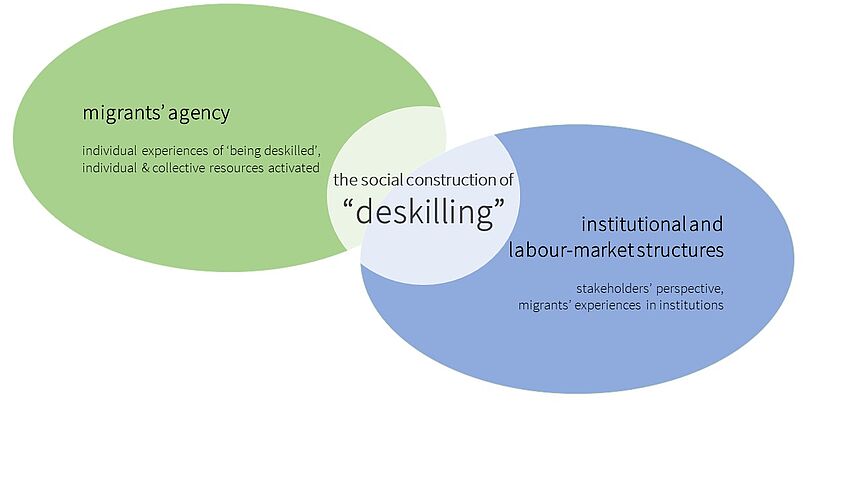
Deskilling is a phenomenon particularly widespread among migrants. Especially the number of highly educated EU mobile citizens who work in a position below their qualification has risen significantly over the past years. However, although we do know about the statistical distribution of skills mismatches and the impact of individual variables on the chances of occupying lesser qualified job positions, few research has so far concentrated on the interplay between institutional and labour market structures and migrants’ agency in this respect. Our project aims to explore the concrete social processes involved in the production of the phenomenon of “deskilling” that may only be retraced from an individual perspective and to examine the phenomenon from different actors’ angles. Applying a qualitative research perspective, we strive to contribute to our understanding of deskilling processes in a migration context. We focus thereby on highly educated migrants from “new” EU member states living and working in the Austrian capital of Vienna. Based on the research principles of constructivist Grounded Theory, we opt for a multi-perspective and longitudinal methodical triangulation, combining a qualitative panel study with migrants (three repetitive interviews over a time-span of two years), interviews with Employment Service (AMS) advisors and other stakeholders, and complementary ethnographical observations.
